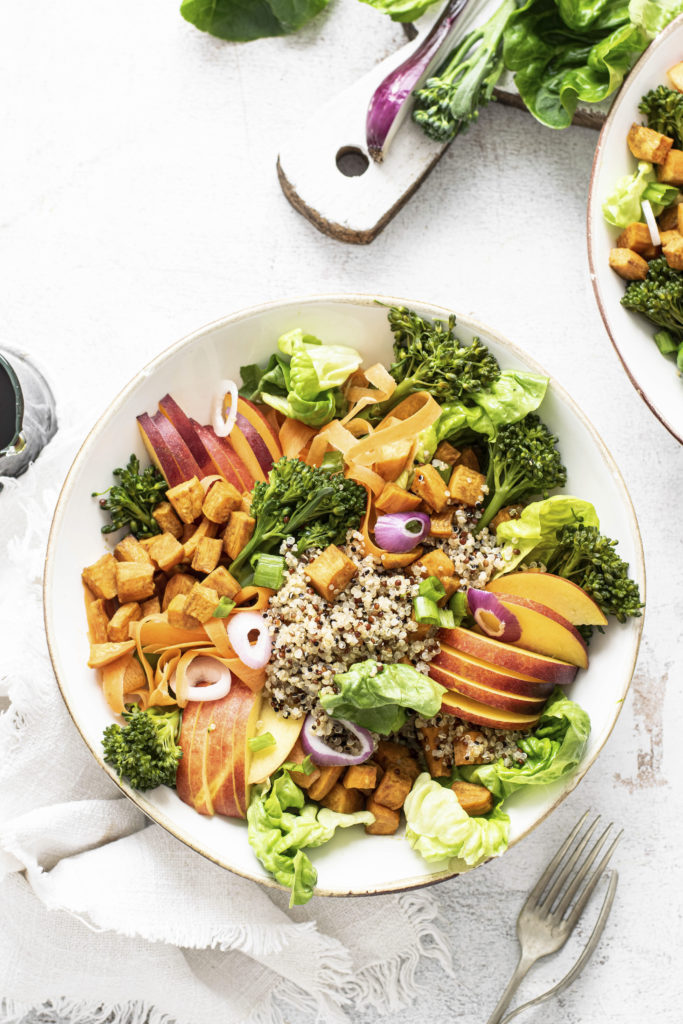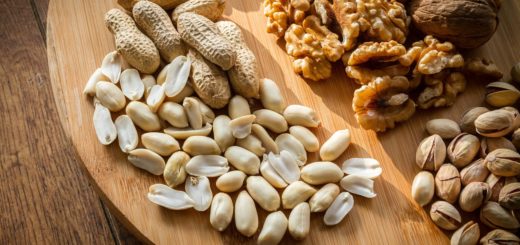Embracing a Plant-Based Diet: My Journey to Wellness
Introduction
It’s not easy to break old habits, especially when it comes to the diet we’ve followed for most of our lives. For over 50 years, I was a lover of cheese and indulged in dairy products with every meal. Meat, especially a juicy steak, was a regular feature on my table. I never imagined I would ever change my diet. But life has a way of surprising us.
Diagnosis: A Wake-Up Call
Everything changed when I received a cancer diagnosis. It was a sudden shock, and in that moment, my entire perspective shifted.
I believed I was on the brink of death, that I would never witness my little son’s journey through school or the joy of him introducing his first love to our family.
Once the initial shock subsided, I delved into extensive research on how to slow down or potentially reverse cancer. I held no faith in shamans or alternative treatments, as I wanted to fully embrace the medical treatment provided to me. However, I was determined to eliminate any factors that might hinder my recovery and lend as much support as possible to the doctors treating me.
I wanted to do everything in my power to support my treatment and improve my chances of recovery. That’s when I delved into extensive research, looking for ways to slow down or even reverse the progression of cancer.
Discovering the Blue Zones and the Power of Plants
I knew that certain regions in the world, known as the Blue Zones, were home to people who enjoyed longer lifespans and had lower rates of specific cancers. These Blue Zones were scattered across the globe, and despite variations in their diets, there were commonalities that defined their eating habits.
First and foremost, these individuals embraced a predominantly plant-based diet. While they were not strictly vegetarians or vegans, their meat consumption was limited to once a week, typically during large family gatherings on weekends. Their meals were rich in beans, legumes, and grains, with dairy products consumed sparingly and mainly in the form of goat or sheep cheeses.

The Role of Diet in Cancer Prevention
Numerous studies have confirmed the link between milk protein and increased cancer risk. Additionally, research suggests a positive correlation between excessive meat consumption, particularly red meat, and various types of cancer. On the other hand, adopting a plant-based lifestyle has been shown to significantly reduce the risk of developing different types of cancer. The abundance of phytochemicals, antioxidants, and fiber found in plant foods provides a powerful defense against cancer cells, promotes cellular repair, and strengthens the immune system.
My Dietary Transition: Embracing Plant Power
It didn’t take me long to make the decision to transition to a predominantly plant-based diet and incorporate specific foods that have been shown to combat existing cancers and prevent new ones from forming.
In this regard, I am referring specifically to the inclusion of pomegranate juice and curcumin in my diet. Numerous studies have confirmed the presence of phytochemicals in pomegranates and turmeric (which contains curcumin) that effectively hinder the development of new cancer cells and impede the growth of existing ones.
I completely eliminated dairy products from my meals, which surprisingly turned out to be easier than expected. Red meat consumption became a thing of the past, and I limited my intake of chicken, fish, and eggs. Instead, I focused on incorporating beans, vegetables like eggplants and zucchini, cruciferous veggies like broccoli, and an abundance of greens like arugula into my daily meals.

Nurturing My Body with Plant-Based Protein
While the decision to adopt a mostly plant-based diet came with its challenges, I approached them with determination and creativity.
As a personal trainer, I understand the importance of protein for tissue repair and muscle maintenance. To meet my protein needs, I explored a variety of plant-based sources such as legumes, quinoa, buckwheat, tofu, and peanut butter. Occasionally, I also included a vegan protein shake in my diet. However, I firmly believe that with the right dietary choices, supplements are unnecessary. After all, our ancestors were stronger and healthier without relying on shakes and energy bars.
The Journey to Recovery and Beyond
I made this life-changing switch approximately eight months ago, and since then, many remarkable things have unfolded. I underwent surgery and radiotherapy, and all of my test results came back negative. Was it solely due to the exceptional skills and professionalism of my surgeon and healthcare team? I have no doubt about their contributions. Did my dietary transformation play a role in battling my illness? Perhaps. It’s a complex question to answer definitively.
However, one thing is certain: this change, beyond its positive impact on my cancer fight (which I firmly believe in), has brought about numerous other benefits. Ever since transitioning to a predominantly plant-based diet, I’ve experienced astonishing improvements in my overall well-being. My energy levels have soared, and my body has grown more resilient, actively supporting my journey through cancer treatment.
I recovered much faster than anticipated. Just one month after surgery, I began my running training, and within a few weeks, I resumed my kettlebell workouts. By the one-month mark after radiotherapy, I had regained the level of fitness I possessed prior to it all. And that’s not all! Along the way, I shed 10 kilos of weight and witnessed positive changes in my body composition.
I feel lighter, healthier, and more youthful than ever before.
While I cannot predict what lies ahead, I can confidently say that the dietary changes I implemented have transformed my life and overall well-being for the better. That much is certain!

Tips for Transitioning to a Plant-Based Diet
First and foremost, let go of any fear! Give it a try. As a self-proclaimed food enthusiast and lover of delicious flavors, I can confidently say that my passion for satisfying meals has remained unchanged since transitioning to a plant-based diet. With dedication and a touch of creativity, your meals can become even more tantalizing than before! This has been my personal experience.
If you’re contemplating a plant-based diet, I encourage you to approach the transition with patience and a sense of adventure. Start by gradually incorporating more plant-based meals into your routine and explore new recipes and flavors that resonate with your taste buds and meet your nutritional needs. Remember, the key is to prioritize whole, unprocessed plant foods while minimizing or eliminating processed and sugary options.
It’s important to note that adopting a plant-based diet doesn’t automatically guarantee overall healthiness. While many plant-based foods are nourishing, there are also less healthy choices within this category. Take, for example, French fries and potato chips—despite being plant-based, they can be high in saturated fat. To maintain a healthy plant-based diet, focus on whole, unprocessed plant foods. Enhance flavors with herbs and spices, use extra virgin olive oil for healthy fats when sautéing, and avoid processed foods that are loaded with excessive sodium and added sugars.
If you’d like me to share some of my favorite recipes, simply drop me a note, and I’ll be more than happy to provide you with some recommendations!
Conclusion
Choosing a plant-based diet offers a range of health benefits, including reducing the risk of chronic diseases, promoting heart health, and aiding in weight management. By embracing plant-based foods, you have the opportunity to enhance your overall well-being. Whether you choose a vegan, vegetarian, or flexitarian approach, the flexibility of a plant-based diet allows for personalized choices and gradual transitions. Focus on whole, unprocessed plant foods and maintain nutritional balance for a healthy and sustainable eating plan.
Disclaimer
The information provided in this post is for educational and informational purposes only. The personal experience and opinions shared are based on my own journey and may not be applicable to everyone. It is important to consult with a qualified healthcare professional or registered dietitian before making any significant changes to your diet or lifestyle. While a mostly vegan diet can have potential health benefits, individual results may vary. Any dietary modifications should be undertaken responsibly and in consideration of your specific health needs and circumstances. The author and publisher are not responsible for any adverse effects or consequences resulting from the use or application of the information provided in this post.




